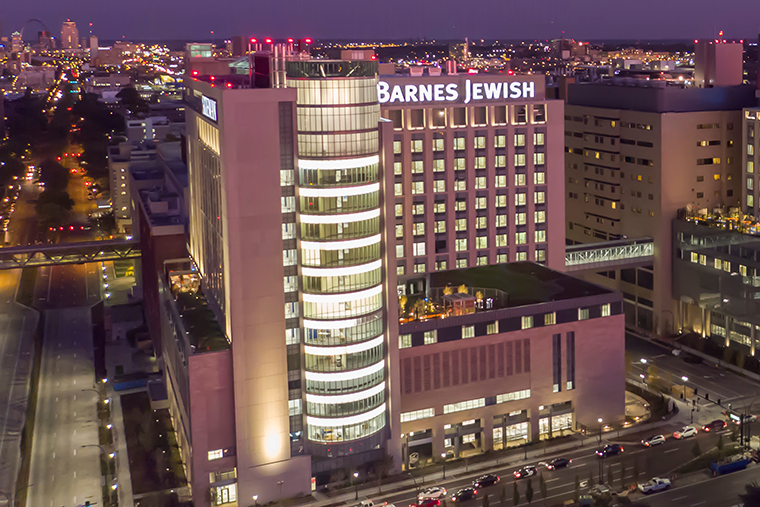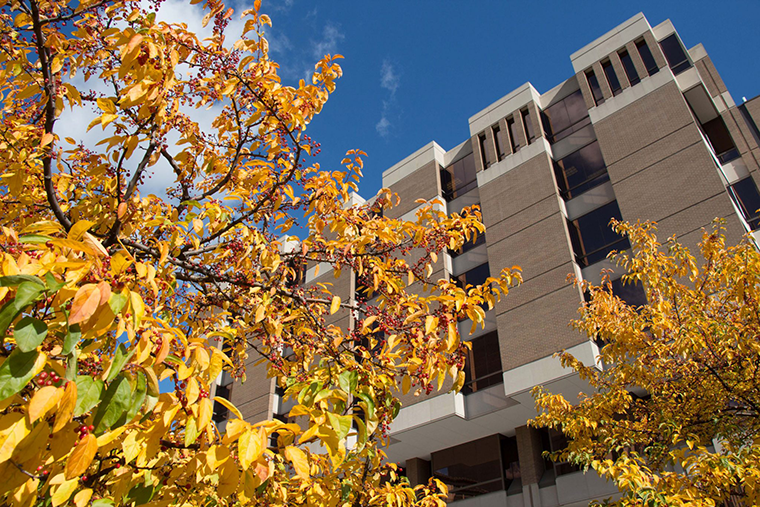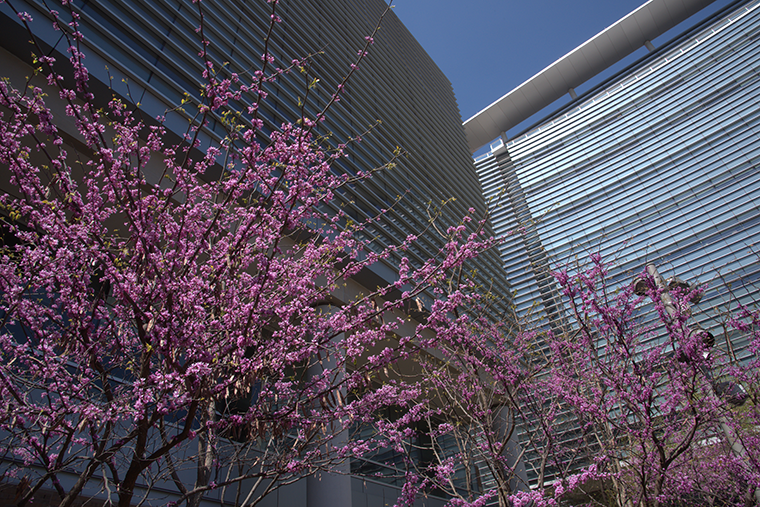Items
Bark Lab
David Bark, PhD
Division of Hematology & Oncology
The overarching goal of our lab is to identify how mechanical stress impacts upon cell and protein function in the cardiovascular system, while advancing tools to diagnose and treat disease.

Barnes-Jewish Hospital (BJH)
Barnes-Jewish Hospital (BJH) is the largest hospital in Missouri and the largest private employer in the St. Louis region. An affiliated teaching hospital of Washington University School of Medicine, BJH has a 1,700-member medical staff. Like St. Louis Children’s Hospital, BJH holds the Magnet Award for nursing from the American Nurses Credentialing Center (ANCC).
Bednarski Lab
Jeffrey J. Bednarski, MD, PhD
Division of Hematology & Oncology
My research has centered on understanding the signals that direct early B cell development. Specifically, over the last several years, we have focused on understanding how signals induced by DNA damage impact developmental signals in B cells. B cell development occurs through a carefully regulated process that centers on the generation of a mature, non-autoreactive antigen receptor. To produce a mature antigen receptor, B cells must intentionally generate and repair DNA breaks in the antigen receptor genes. The creation of these DNA breaks is highly regulated by cooperative signaling from two surface proteins, the pre-B cell receptor (pre-BCR) and the interleukin-7 receptor. Together these two signals control cell cycle proliferation and arrest, induction of genes required for antigen receptor gene rearrangement, and cell viability.
Behavior Health Response
Behavioral Health Response provides crisis support, telephone counseling, and mental health resources 24 hours a day, 7 days a week.

Bernard Becker Medical Library
The Bernard Becker Medical Library provides information resources and technology in support of the educational, research and patient-care objectives of the School of Medicine. The library serves the medical school, Barnes-Jewish Hospital and St. Louis Children’s Hospital. Holdings consist of physical and digital books, journals and databases, many available remotely. The library has a staff of 50, including librarians and information technology specialists. Becker librarians maintain several informational blogs, and a rare books archive is home to one of the nation’s finest collections of historical medical materials.
Bigley Lab
Tarin Bigley, MD, PhD
Division of Rheumatology & Immunology
We study how viruses disrupt the immune system and contribute to autoimmune disease. Millions of people suffer from autoimmunity and the prevalence continues to rise. For most autoimmune diseases, the cause is unknown but viral infections are suspected to play a role. Despite this link, there is limited data demonstrating a direct causal role for viral infections in autoimmune disease. We have found that neonatal infection with roseolovirus induces autoimmunity by disrupting the processes that normally limit the development of autoreactive T and B cells. Our initial studies suggest that this occurs due to infection of the thymus.

BJC Institute of Health at Washington University
The largest building ever constructed on the campus of Washington University School of Medicine is the BJC Institute of Health at Washington University, the home base for BioMed 21 — the University’s innovative research initiative designed to speed scientific discovery and apply breakthroughs to patient care rapidly. Started in 2007, the building is supported by a $30 million gift to Washington University’s medical school from BJC Health Care and added 240,000 square feet of research space. As a hub for BioMed 21, the building provides space for five Interdisciplinary Research Centers (IRCs).
Bridge at WashU
An LGBTQA affinity group for Washington University in St. Louis faculty and staff. BRIDGE: Bravery, Responsibility, Inclusion, Dignity, Guidance, and Empowerment.